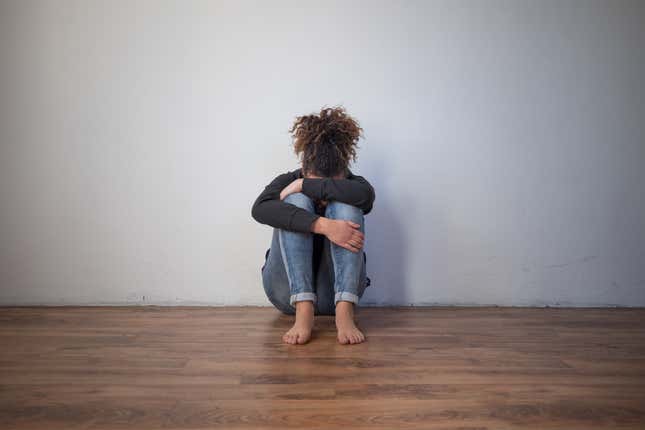
We’re still struggling to reconcile historic trauma with the black experience in America. After years of systemic oppression, exclusion, and discrimination affecting generations of families, black America has been left to shoulder the burden of that trauma alone. It shows up when applying for jobs and facing disproportionate pay. It shows up in sentencing disparities that make black people four times more likely to get arrested for marijuana possession as a white person. And it shows up in our national approach to maintaining mental health and fighting addiction.
Today, black Americans are 20 percent more likely to experience significant mental health issues than the general population. Black Americans are more likely to report feeling sad, hopeless, and worthless. Black teenagers are more likely to attempt suicide than white ones. Yet black patients are less likely to be offered medication or psychotherapy, less frequently included in research, and more likely to visit emergency rooms or primary care doctors than a psychiatrist. Confronted by a system that fails to account for that history and this reality, only one in three black Americans with mental illness receives appropriate treatment.
For years, the black community has been disproportionately impacted by a crisis of mental health and addiction care, from the post-traumatic stress of living in poverty to LGBTQ young people dying by suicide. This epidemic has been fueled by decades of neglect from politicians in Washington, D.C., who claim to prioritize mental health and addiction while simultaneously seeking to slash funding for treatment. Political leaders compounded the problem by pushing racist and punitive policies to the crack epidemic and drug wars, which left us a system that criminalizes mental illness and considers addiction in moral instead of medical terms.
To meet this urgent national challenge, we need a new approach to providing mental health and addiction care that is mindful of this history and the black experience. That will require a true national commitment to build a better mental health care system, rooted in empowering communities so that everyone feels they have the support and resources to heal. Today, I’m proposing a plan to do just that.
Tackling this crisis begins by enlisting local communities. Through $10 billion annual “Healing and Belonging” grants, we’ll encourage our communities to leverage their ingenuity and on-the-ground expertise to help improve health. Columbia, S.C., might choose to expand the addiction care workforce through its churches, while Detroit might focus on investing in youth outreach programs. We’ll designate and fund Health Equity Zones to address pressing health disparities in communities with histories of redlining and marginalization. And we’ll require every school across the country to teach mental health first-aid courses, and train teachers and school staff to know how to help students when they need it.
We also need a more integrated approach to care that will allow for universal access to mental health and addiction coverage. My administration will incentivize greater integration of primary care and mental health services. And we’ll finally take on big insurance companies to ensure mental health parity—meaning that if a health plan offers unlimited doctor visits for a physical condition, it must do the same for a mental health condition—by penalizing insurance companies that do not comply.
At the same time, with the rate of black opioid overdose deaths more than twice that of white Americans, we will tackle the opioid epidemic head-on. Having seen lives saved when we equipped South Bend, Ind., first responders with Narcan, we’ll ensure universal access to medication-assisted treatment—and hold drug companies accountable for exacerbating the epidemic in the first place.
We must also equip our mental health professionals to combat racial bias and deliver care in a culturally and historically respectful manner. Less than 2 percent of American Psychological Association members are black, which is why as president, I will invest in expanding the number of black healthcare professionals. We’ll also raise awareness of trauma and expand access to trauma-informed health care to address the enduring legacies of slavery, Jim Crow, and disparate experiences with police.
Finally, we need to decriminalize mental illness and addiction. That means eliminating incarceration for drug possession and reducing sentences for other drug offenses—and applying those policies retroactively. We’ll train police forces to identify mental illness and expand innovative programs that get people with mental illness or substance abuse histories out of the criminal justice system before it’s too late.
Through these bold reforms, we can reduce the number of people incarcerated because of mental illness or substance use by 75 percent and ensure that far more of those who need care receive it—over 10 million more people by the end of my first term. By 2028, we will prevent 1 million deaths of despair.
Now is the time to pursue transformative policies and save lives. When I’m president, that’s what I’ll deliver.
Pete Buttigieg is a Democratic candidate for president.

